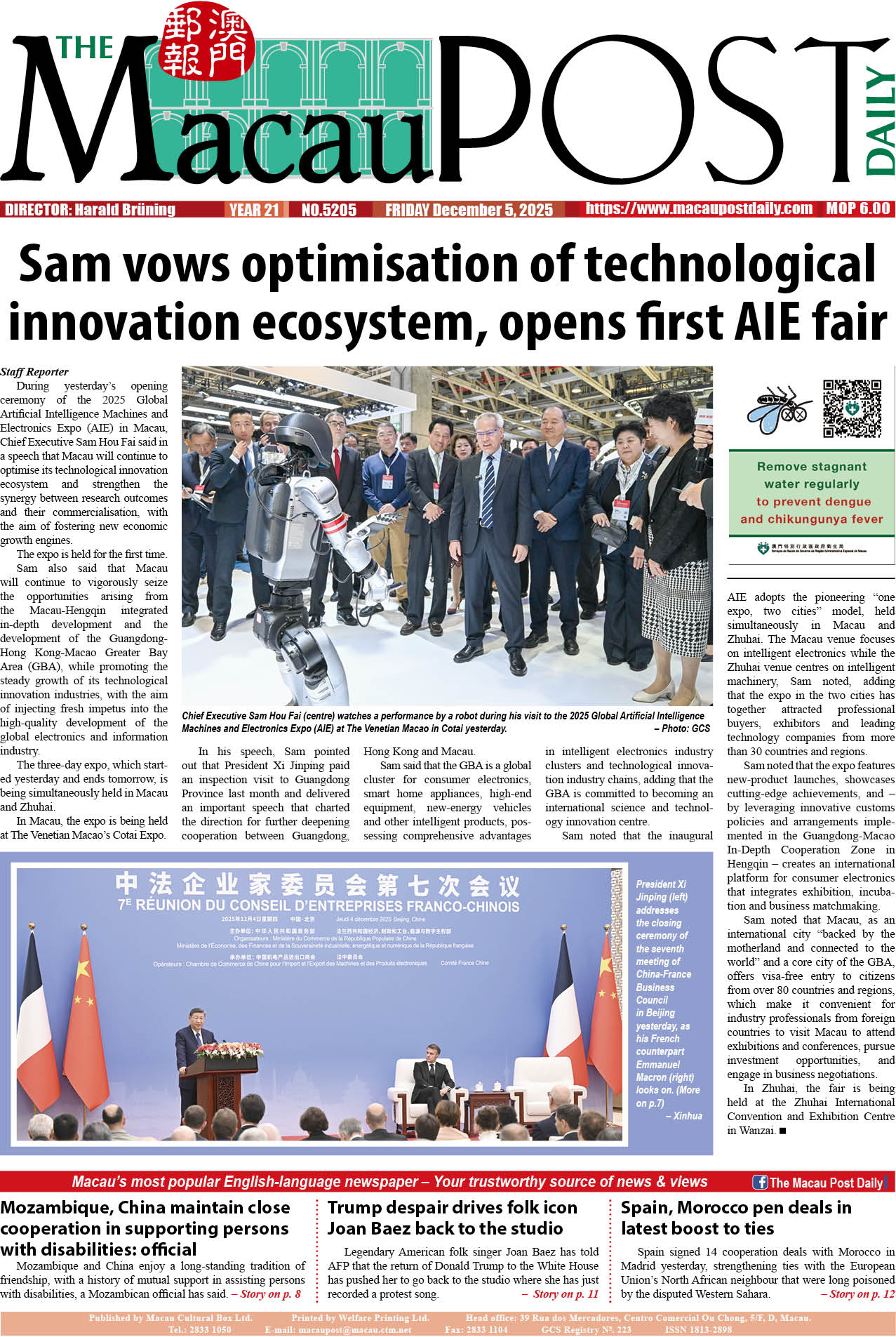The Health Bureau (SSM) said yesterday that it expects an increase in local residents’ overweight and obesity rate to be shown by the findings of next year’s Macau Health Survey compared to the rate revealed by the survey conducted about a decade ago, in response to which the bureau is stepping up its efforts to slow the rising trend.
The Macau Health Survey is conducted by the Health Bureau every 10 years, with its last edition conducted in 2016. The survey will be carried out next year.
Wong Weng Man, who heads the bureau’s Health Promotion Division, made the remarks when attending a current affairs phone-in programme hosted by Ou Mun Tin Toi, the Chinese-language radio channel of public broadcaster TDM.
Wong’s remarks made during yesterday’s phone-in programme came after she chaired a press conference last week where she reported local residents’ overweight and obesity situation and her bureau’s various measures aiming to tackle the predicament.
Wong also announced during last week’s press conference that her bureau will carry out its Macau Health Survey next year aiming to assess local residents’ latest health conditions including people’s body weight.
In Macau, those with a body mass index (BMI) of between 23 and 24.9 are classified as overweight, while those with a BMI of 25 or above are classified as obese.
BMI is defined as the body weight divided by the square of the body height.
In compliance with the World Health Organisation’s (WHO) guidelines in general, the BMI overweight and obesity range varies across different countries and regions due to different reasons such as ethnic differences in body composition and their different public health strategies and priorities.
Wong noted during last week’s press conference that according to the findings of the last Macau Health Survey, 21.3 percent of local residents aged 18 or above were classified as overweight in 2016, while 30.6 percent of local residents were classified as obese. Consequently, 51.9 percent of local residents aged 18 or above were classified as overweight or obese in 2016, up 5.7 percentage points from 2006.
Regarding local teenagers, Wong said last week that according to the findings of another survey by her bureau, the combined overweight and obesity rate of secondary school students enrolled in the 2022/23 school year stood at 21.7 percent, up 0.5 percentage points from five years earlier.
Wong said last week that the situation indicates that local residents’ overweight and obesity situation is on the rise.
Wong underlined last week that her bureau is aiming to be able to stop the city’s rising overweight and obesity rate by 2030.
During yesterday’s phone-in programme, Wong said that while the life expectancy of Macau residents reached 83.3 years last year, an increase of five years compared to when Macau returned to the motherland in 1999, the risk of local residents becoming overweight or obese or suffering hypertension, hyperglycaemia or hyperlipidaemia has been gradually rising.
Wong reaffirmed yesterday that according to the findings of the 2016 Macau Health Survey, over half of local adults have a weight “exceeding the ideal range”, pointing out that her bureau will carry out its Macau Health Survey again next year.
Wong said she expects the overweight and obesity rate to be shown by the findings of next year’s survey to be even higher than the rate shown by the 2016 survey.
Wong underlined that despite the expected results next year, her bureau is aiming to slow the rising trend of residents’ overweight and obesity rate by implementing various special measures including those aiming to enhance residents’ awareness and ability to take the initiative in health management.

Wong Weng Man, who heads the Health Bureau’s Health Promotion Division, addresses yesterday’s phone-in programme hosted by public broadcaster TDM’s Chinese-language radio channel. – Photo courtesy of TDM









